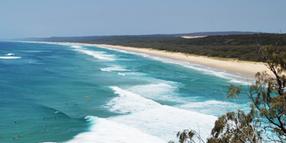Dealing with midges part of the seasonal cycle
Explore Councils by state

Biting midge breeding season is upon us with an increase in numbers expected over the coming weeks.
Regional Mosquito Management Group chairman and Redland City Councillor Paul Golle said that unlike mosquitoes, which Council did treat, there were no midge-specific insecticides available and no chemicals approved or safe for use in the Moreton Bay Marine Park, where biting midges bred.
“That’s because using chemicals where the midge lavae live could also harm fish and other marine creatures,” Cr Golle said.
“Council has a marine parks permit from the State Government that allows us to use certain chemicals in the marine park environment, like the ones we use for mozzies, but the permit does not allow for the use of chemicals that are effective on midges.
“However, we can treat mosquito lavae and have a year-round spray program.
“Thankfully, unlike mosquitoes, midges are not known to transmit any human diseases in Australia, but Council hasn’t given up the challenge of finding a better way to manage midges and is partnering with industry research bodies and other councils to keep up to date with the latest research and practices.”
Cr Golle said biting midges often arrived with spring in south-east Queensland coastal areas and could remain a nuisance throughout summer.
“While biting midge are endemic to our environment, you can take measures to protect yourselves during the peak breeding season,” he said.
This includes:
• Wearing insect repellent and long, loose-fitting clothing if heading outdoors at dawn and dusk • Installing fine mesh fly screens where midge are making their way through into homes. Fly screens can also be treated with UV stable insecticide • Increasing air flow around your home • Keeping vegetation surrounding the house to a minimum to reduce insect-harbouring areas • Privately initiated barrier treatments from qualified pest controllers
For further information on biting midge, visit Council’s website.